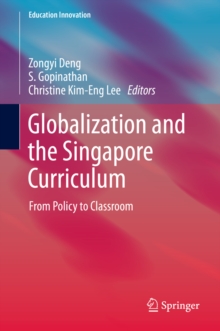
Authentic Problem Solving and Learning in the 21st Century : Perspectives from Singapore and Beyond PDF
Edited by Young Hoan CHO, Imelda S. Caleon, Manu Kapur
Part of the Education Innovation Series series
Description
With the rapid changes in the social, political, economic and technological landscape around the world, today's learners face a more globally competitive job market after leaving school.
The 21st century, which is characterized by the emergence of knowledge-based societies, expects learners to be comfortable in dealing with ambiguities and complexities in the real world and to be able to use knowledge as a tool at their workplace.
This book will help readers develop an in-depth understanding of authentic problem solving and learning, and how it can be used to make a difference in their school or learning communities for the development of 21st century competencies.
Comprising 20 chapters written by Singapore-based and international authors, the book is organized into three themes: authentic problems, authentic practices, and authentic participation.
It details innovative school practices (e.g. productive failure) concerning the design of problems, learning activities, learning environments, and ICT tools for authentic problem solving and learning.
Along with theoretical explanations of authentic learning processes and outcomes, the book also elucidates how students learn by generating and exploring solutions to complex problems and which cognitive functions are needed at different stages of problem-based learning.
Presenting coherent descriptions of instructional design principles, successful cases and challenges encountered in K-12 schools and learning communities, the book provides useful information, new insights, and practical guidance for school directors, parents, teachers and researchers seeking to develop authentic learning environments for 21st century learners.
Information
-
Download - Immediately Available
- Format:PDF
- Publisher:Springer Nature Singapore
- Publication Date:12/08/2015
- Category:
- ISBN:9789812875211
Information
-
Download - Immediately Available
- Format:PDF
- Publisher:Springer Nature Singapore
- Publication Date:12/08/2015
- Category:
- ISBN:9789812875211










